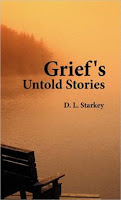In the Presence of Mine Enemies is a book about the kidnapping of Martin and Gracia Burnham. The Abu Sayyaf, a terrorist group connected with Bin Laden, kept them in a Philippine jungle for about a year. Martin did not make it through the ordeal. Here is an excerpt about prayer from Gracia's memoir:

"Six or so men praying six morning a week for fifty-three weeks - that's more than nineteen hundred prayers. Add to that the intercessions of all the Burnham and Jones family members, our supporting churches across ten states, the entire New Tribes family of some 3.100 missionaries in the twenty-five nations. all those who logged in to the website... Martin's and my pleadings with God day and night. The total is incalculable.
I don't doubt the truth of 'Ye have not because ye ask not' (James 4:2). But it sure doesn't seem to apply in this case; we all asked God over and over and over for protection and see release. No one can say that our petition was inadequately brought before the Lord...
Obviously, the answer lies not in the number of prayers or the particular wording used in those prayers. There has to be another factor in the mix. So what is it?
Perhaps it's useful to notice that while the verse in James says fervent prayer 'availeth much,' (5:16) it does not say it 'availeth everything.' Why?
Because the Abu Sayyaf - and all of us - still retain the power of personal choice, the option of standing stubbornly against the will of God. And that obstinate stance is, apparently, something an almighty God is not willing to bulldoze. Of course, he could have fired heavenly lasers into [their] brains...But that would have made them puppets instead of independent human beings with free will of their own, for which they will be eternally responsible....
Apparently, God runs into this impasse time after time. Having granted the human race a measure of self-determination, he would be hard-pressed to steamroller it when people misuse it."














